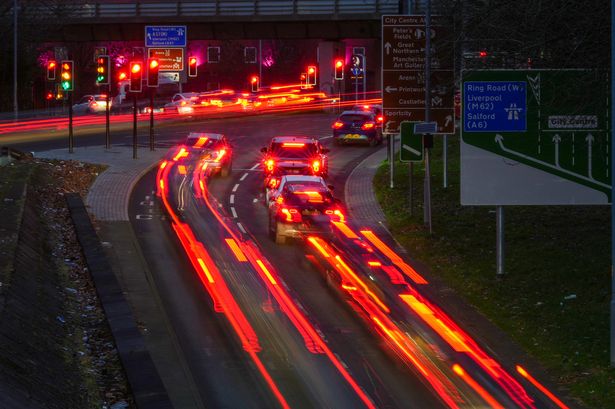The final Saturday before Christmas traditionally witnesses a surge in shopping activity as people rush to complete their holiday preparations. This year, authorities in Greater Manchester are preemptively addressing the anticipated traffic congestion by strongly encouraging residents to forgo personal vehicles and utilize public transportation. The appeal underscores the significant strain placed on the region’s road network during this peak period and aims to mitigate the inevitable delays, frustration, and environmental impact associated with heavy traffic. By opting for trams, buses, and trains, shoppers can contribute to a smoother flow of traffic, allowing essential services like emergency vehicles and delivery trucks to navigate more efficiently. This collective effort not only eases individual journeys but also fosters a more sustainable and less stressful festive atmosphere for everyone.
The rationale behind this public transport campaign extends beyond mere convenience. Heavy traffic congestion carries substantial economic repercussions, as businesses contend with delayed deliveries, reduced customer access, and lost productivity. Moreover, the environmental impact of idling vehicles exacerbates air pollution, posing a health risk to the population, particularly vulnerable individuals like children and the elderly. By choosing public transport, individuals actively participate in reducing their carbon footprint and contributing to cleaner air quality. This concerted action translates into a healthier environment for all and helps mitigate the long-term effects of climate change. The message from Greater Manchester authorities is clear: making the conscious decision to utilize public transport is a gift not only to oneself but to the entire community.
The public transport network in Greater Manchester offers a comprehensive and readily accessible alternative to driving. The region boasts an extensive tram network, known as Metrolink, connecting various town centers and shopping districts. A comprehensive bus network complements the tram system, providing access to even more areas and offering flexible routes. Furthermore, train services facilitate travel to and from Manchester city center and connect the region to other major cities. These integrated transport options provide a viable and convenient alternative to driving, enabling shoppers to reach their destinations efficiently without the stress of navigating congested roads and searching for parking. The integrated nature of the network allows seamless transfers between different modes of transport, further enhancing the ease and accessibility of public travel during the busy holiday season.
To incentivize the use of public transport, Greater Manchester authorities often implement specific measures during the Christmas period. These initiatives may include discounted fares, increased service frequency, and extended operating hours. These initiatives aim to create a more appealing and cost-effective travel option compared to driving. Additionally, park-and-ride facilities are strategically located around the city, allowing commuters to drive part of the way and then seamlessly transfer to public transport, combining the convenience of personal vehicles with the efficiency of mass transit. By offering these practical and cost-effective solutions, the authorities strive to make public transport the preferred choice for holiday shoppers, thus minimizing traffic congestion and maximizing accessibility for all.
The success of this public transport campaign hinges on the collective responsibility of individuals and businesses. While the authorities provide the infrastructure and incentives, it is the active participation of the public that ultimately determines the effectiveness of the initiative. Businesses can contribute by promoting sustainable travel options to their employees and customers, encouraging flexible working arrangements to stagger travel times, and offering incentives for utilizing public transport. Individuals can play their part by planning their journeys in advance, utilizing journey planner apps to identify the most efficient routes, and considering alternative travel times to avoid peak hours. This collective consciousness and proactive approach will contribute to a smoother and more sustainable holiday season for everyone.
In conclusion, the appeal to leave cars at home and embrace public transport on the last Saturday before Christmas in Greater Manchester represents a proactive strategy to address predictable traffic congestion. This initiative transcends mere convenience; it embodies a commitment to economic efficiency, environmental responsibility, and community well-being. By utilizing the readily available and comprehensive public transport network, individuals contribute to a more sustainable and less stressful holiday experience for everyone. The success of this endeavor rests on the collective responsibility of residents, businesses, and authorities working in tandem to create a smoother, greener, and more enjoyable festive season. This proactive approach to managing holiday traffic serves as a model for other cities grappling with similar challenges, highlighting the power of collective action in creating a more sustainable and vibrant urban environment.














